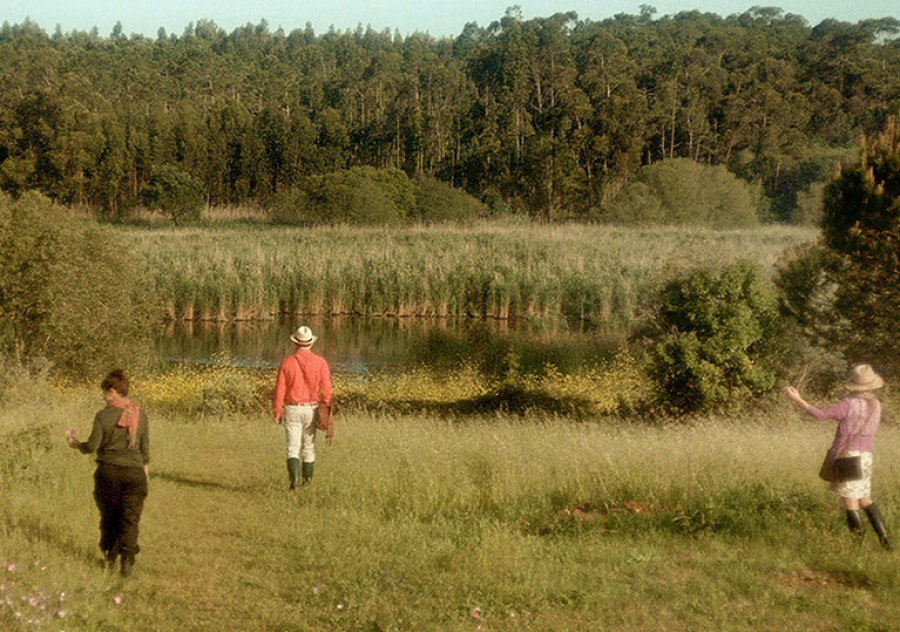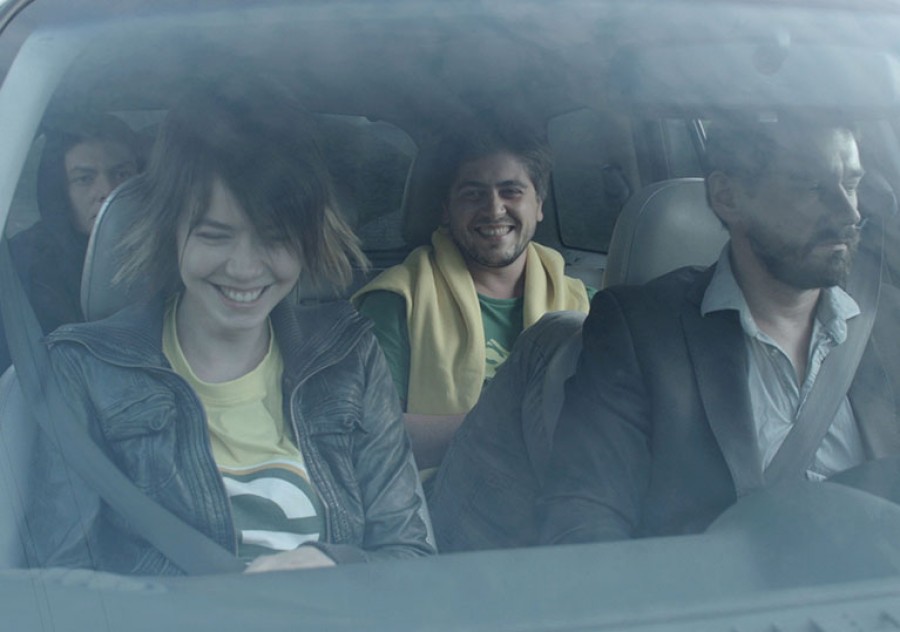
Now in its 13th year, the IndieLisboa International Independent Film Festival offers the people of Portugal’s capital a chance to see a wide array of new films from around the globe, as well as attend a bunch of awesome accompanying parties and concerts. We had a swell time at this year’s instalment over its final weekend, encountering enthusiastic audiences, cool venues spread out across the city, and a cinephile culture keen to take things well into the night – seriously, some of the screenings start super late. Here’s five highlights from our stop-over…

We’ll admit: some of our most anticipated films at IndieLisboa ending up screening without English subtitles. As such, Marcelo Felix’s experimental Portuguese film, Paul, held some considerable appeal, being that it centres around a film sub-titler and the curious relationship she develops with the film she’s working on. Switching back and forth between the subtitler (who never speaks) in her office and the footage she’s working on, Felix’s film frequently toys with our bearings by warping or removing the sound from the films within the film, rewinding subtitle-free footage not in Portuguese to then present it again with the protagonist’s added subtitles and replaying scenarios with different performers on-screen. The enigmatic qualities of this 71-minute feature eventually move towards tedium, but this was definitely one of the more formally interesting titles on offer.

German documentarian Lutz Gregor makes his theatrical feature debut with this road movie music doc. The title refers to a band of musicians of Malian descent, who combat the imposition of Sharia law in Mali by fighting for peace and freedom of speech with their fiery lyrics and performances. Among the assembly are young rapper Master Soumy alongside Fatoumata Diawara, who some may recognise from her role in Abderrahmane Sissako’s Timbuktu. Though there are a few memorable visual setups outside of the concert scenes, which take us from Bamako in the south west of the region to Timbuktu in the north, Gregor’s style is relatively unostentatious. He knows his greatest asset is simply letting the dynamic performers have their say, spoken or sung. Credit, too, for not shying away from commentary on the West’s part in the rise of Islamic radicalism in the country.

Regarding his fourth feature, Romanian director Adrian Sitaru offered up the following quote circulated in the IndieLisboa programming: “I would like the spectators to reflect about what love can mean in extreme conditions.” One of those extreme conditions is thrust at viewers almost immediately, with a 15-minute reunion scene that swiftly becomes an extended verbal fight between a patriarch doctor and his adult brood. The kids have inadvertently discovered that under the Ceausescu regime, their father reported women trying to get abortions, and sees nothing immoral about his actions. And then after that, we discover that the youngest of the kids, two twenty-something twins, are secretly lovers, and are suddenly facing the prospect of a baby on the way. An abortion drama by way of black comedy, Sitaru mostly avoids his film coming across as shallow taboo-pusher through intimate Dogme-style shooting and a strong cast, working with largely unscripted material beyond basic scene outlines. It doesn’t all land, but it’s certainly memorable.

With a Berlin Silver Bear for directing already under its belt, Mia Hansen-Løve’s follow-up to Eden arrived at IndieLisboa with enough prior prestige to land it the prime closing film slot. Rather than revisit the notion of faded youth that arguably formed much of the backbone of Eden and Goodbye First Love, the director’s new work sees a noticeable shift in her preoccupations. Here the protagonist is Isabelle Huppert’s Nathalie, a middle-aged philosophy teacher not yearning for her younger days, but rather calmly trying to assess where her life can go in the future, after her husband of 25 years confesses to having an affair. Meanwhile, her overbearing mother (Edith Scob) seems not long for this world, and Nathalie’s perspectives are constantly being questioned by the free-spirited ways of her offspring and a former pupil (Roman Kolinka). By nature of its smaller-scale focus, Things to Come lacks the grander cumulative punch of Eden’s two-decade sprawl, but this is still one of France’s best working filmmakers at the top of her game; packing more bittersweet nuances into small moments than most films can manage with one big emotional outburst.

After Olmo and the Seagull (see our previous report), Robert Greene’s non-fiction feature Kate Plays Christine offered IndieLisboa’s other notable film concerning an actor interrogating the notion of performance, as well as the validity of a director’s instructions and intent. Here, actor Kate Lyn Sheil meticulously prepares to portray the role of Christine Chubbuck, a real-life news reporter who attempted suicide on live television in 1974, later perishing of her wounds in hospital. Four decades on, no footage of the incident exists in the public sphere, being that it happened a few years before the advent of VCRs. It’s almost an urban legend, making it particularly difficult for Sheil to immerse herself in the world of this unknowable figure. And then the question arises of the actual worth of attempting to make drama out of this depressed victim of tragedy – the moral complications and issues of accountability and empathy that arise. Weaving between Sheil’s research processes, a retracing of Chubbuck’s known steps, and deliberately sterile, speculative re-enactments of events leading up to the suicide, the cumulative effect of Greene’s film is a thoroughly unsettling experience. It’s fascinating in its acknowledgement of the inability to know someone’s inner world, let alone convey it with any degree of supposed truth.
Published 4 May 2016

Olmo and the Seagull deserves its comparison to Rosemary’s Baby, despite being a very different beast.

Isabelle Huppert stars as a woman calmly losing control in Mia Hansen-Løve’s life-affirming fifth feature.

Steven Spielberg, Nicolas Winding Refn and Jim Jarmusch are among those with new films at the 69th Cannes Film Festival.